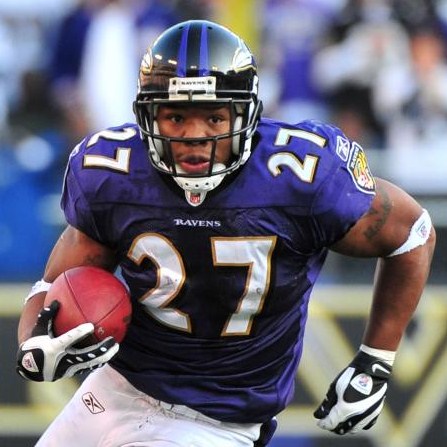
Hope is an interesting, lovely, powerful thing.
In its purest form hope is a cardinal virtue. It is the mental orientation toward the good, toward what is best. It is the true personal desire that goodness and right will prevail.
Yet, when distorted and perverted, hope can be dangerous, mentally decaying. Even evil.
Ray Rice is being vilified for beating his now-wife unconscious. This reaction is good. This type of behavior should be seen as, and called out for, the evil that it is.
After all, common sense dictates that vice, like virtue, exists. Virtue is rightly lauded. Vice is rightly demonized.
When the first video of Rice dragging his unconscious wife out of an elevator was released some people hoped that there was "more to it." That there would be some explanation other than Rice having beaten her to the ground. The Ravens coach lauded his character. Baltimore fans gave him a standing ovation when he played in preseason games.
The hope that their idol didn't act evilly was crushed when the new video showing Rice beating his now-wife was released. Shockingly, and sickeningly, many of these people are still defending and supporting him.
Others hoped, even when the first video was released, that Rice would be punished severely for his actions. This hope, grounded in a healthy sense of justice, is noble. As was the outrage at his paltry two game suspension.
These people err, and their hope becomes evil, when they don't see Rice as a real human being - a real human being like themselves.
Those who wanted their hero to be innocent, despite evidence proving otherwise, deified and pedestalized Rice and could not see him as a human being. Yet those who judge the totality of his character based on this one incident, who are piling on insult and hatred upon him, are making the same mistake. They automatically assume that this one isolated incident is a complete indicator of the totality of his character.
This is unrealistic and dehumanizes Rice, seeing him not as a man, a man who could even make a terrible mistake, but as something less than a man, an awful animal in every aspect of his life that will always be a terrible person through and through. They are adamant that he deserves no love, mercy, or respect.
Again, the foundation of this attitude is an important, necessary sense of justice. But to take it further than that and dehumanize Rice is as wrong as trying to exonerate him for his awful, evil actions.
There is another way of looking at the Ray Rice case. But it's a dangerous way that is antithetical to our mean-spirited, sensationalistic culture.
It is the way of hope.
The hope that the awful thing that Rice did does not represent the entirety of who he is. The hope that his actions were done in a desperate, pathetic, stupid moment in which his emotions took a hold of him in a way that made him do something evil and against his true character. The hope that he can learn from his mistake and become a better person because of it. The hope that, despite this evil thing he did, he is a good person and will do whatever is necessary to eliminate the things inside him that are not good.
After all, who among us would want the totality of their character to be judged solely on the absolute worst things they've ever done? Whether it is one evil incident like Rice's or a lifetime of different awful, evil acts that we all do. The worst in us does not necessarily define us.
As any of us would hope for love and forgiveness in our worst moments so I extend those things to Ray Rice.
The ultimate question is: where does your hope lie?
Erik Ritland is a writer and musician from St. Paul, Minnesota. His blog and podcast Rambling Onfeatures commentary on music, sports, culture, and more. He is also a contributor for Minnesota culture blog Curious North. Support Erik's music via his Patreon account, reach him via email, or find him on Facebook and Twitter.
 RSS Feed
RSS Feed
